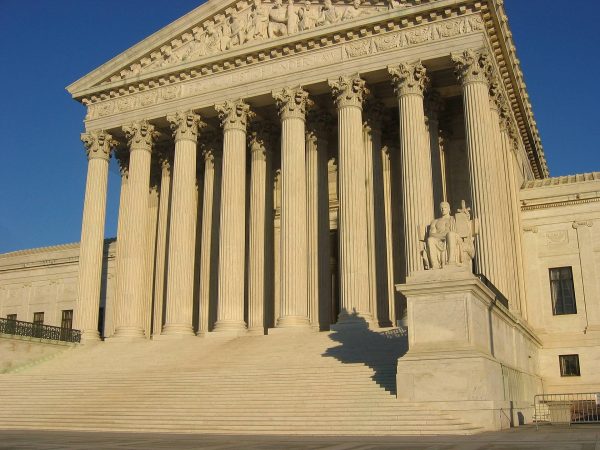In a significant ruling, the U.S. Supreme Court upheld the authority of state judges to supersede state legislatures in the regulation of federal elections on Tuesday. Authored by Chief Justice John Roberts, the 6-3 opinion clarifies that the Elections Clause of Article 1 of the U.S. Constitution does not insulate state legislatures from the ordinary exercise of state judicial review.
Joining Roberts in the majority were Justices Sonia Sotomayor, Elena Kagan, Brett Kavanaugh, Amy Coney Barrett, and Ketanji Brown Jackson. Justices Clarence Thomas, Neil Gorsuch, and Samuel Alito dissented.
Roberts wrote in his ruling:
“State courts retain the authority to apply state constitutional restraints when legislatures act under the power conferred upon them by the Elections Clause,” Roberts wrote.
“But federal courts must not abandon their own duty to exercise judicial review. In interpreting state law in this area, state courts may not so exceed the bounds of ordinary judicial review as to unconstitutionally intrude upon the role specifically reserved to state legislatures by Article I, Section 4, of the Federal Constitution,”
The case in question, Moore v. Harper, revolved around a dispute on whether a state court has the power to regulate federal elections, specifically regarding gerrymandered redistricting maps. Some state lawmakers sought an interpretation favoring the “independent state legislature” (ISL) theory, which proposed state legislatures should have near-complete control over the regulation of federal elections for the presidency and congressional seats.
The high court’s involvement was triggered when a North Carolina state court rejected GOP-drawn congressional maps first submitted in November 2021. These maps were deemed unconstitutional by the state’s majority Democrat Supreme Court, alleging an advantage for the Republican-led legislature in the state’s 14 congressional districts.
Instead, the state used court-drawn maps in the subsequent midterm elections, which yielded an equal seven seats for both parties. The GOP state legislature contended that this utilization of court-drawn maps violated the General Assembly’s constitutional right according to the elections clause.
Invoking the ISL doctrine, the GOP legislature asked the Supreme Court to affirm that state legislatures have “plenary” or unqualified authority to decide how elections are run, essentially excluding any state judicial review.
However, the Supreme Court’s decision puts a definitive end to this argument, emphasizing that the state judiciary maintains a critical role in regulating and reviewing federal elections. This ruling represents a significant step towards preventing excessive partisan gerrymandering and preserving checks and balances in the electoral process.

